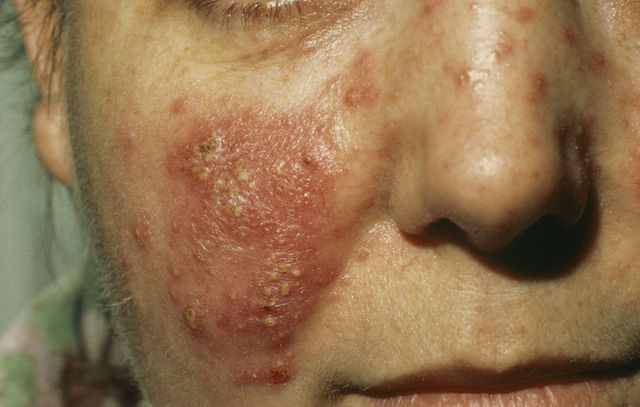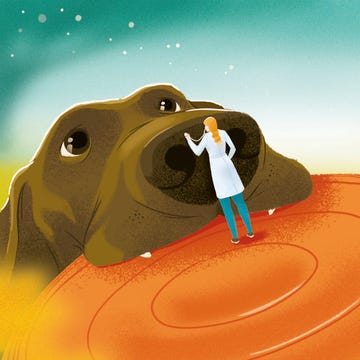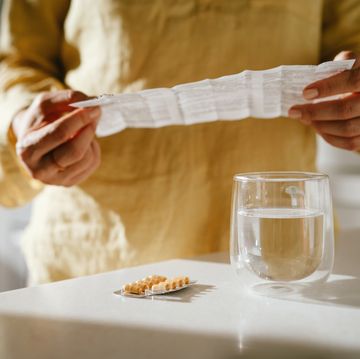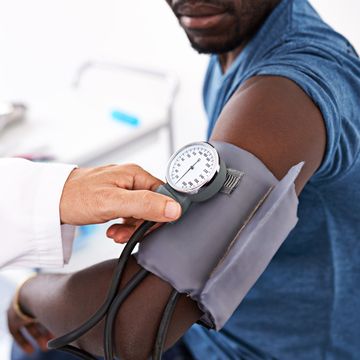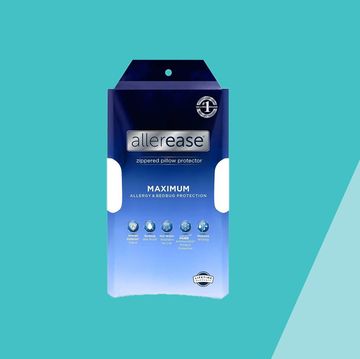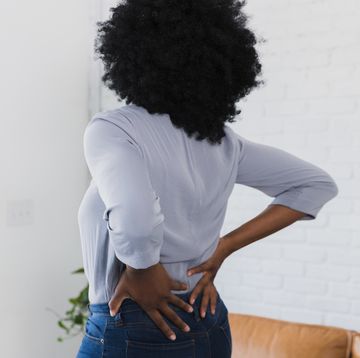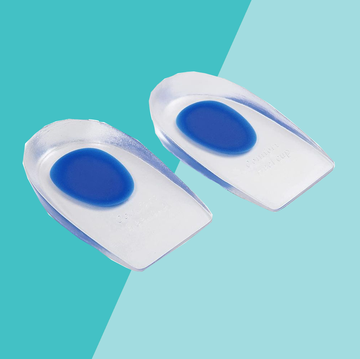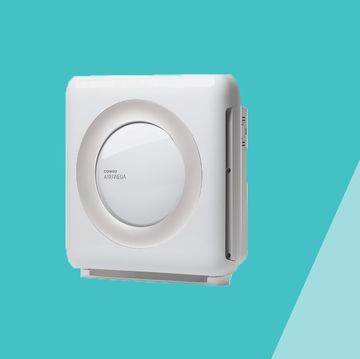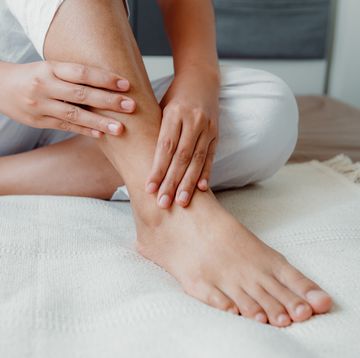Sure, we all get red in the face at one time or another—maybe you blush easily when you're embarrassed or flush after running up the steps or hitting a cycling class. But for about 16 million Americans, that redness never really goes away due to a skin condition called rosacea. Think you may have it? Here's what you need to know.
Your skin might sting.
Rosacea is chronic inflammation of skin that can pop up in several ways: redness that runs across the cheeks and down the nose, angry little red blood vessels called capillaries that appear on the cheeks and nose, pimple-like bumps that persist and don't clear in the same area (this is known as acne rosacea), and an overall feeling of sensitivity that can even sting, says Jeanine B. Downie, MD, a dermatologist in Montclair, New Jersey.
There are quite a few triggers.
Whether it's that takeout with a kick or your favorite hot sauce, spicy foods are known to be among the worst rosacea triggers, says Downie. More fun things—like drinking alcohol (especially red wine), laying out in the sun, and taking hot showers and baths—are also known to aggravate rosacea. And factors like stress, heat (think: when you turn up that thermostat in the winter), and windy or frosty weather can also spike a flare-up. If you experience redness that lingers after any of these common triggers, it's very possible that you have rosacea.
MORE: 8 Great—And Not-So-Great—Things Spicy Foods Do To Your Body
Genetics plays a part.
If your dad or grandma has rosacea, you can practically count on any chronic redness you're experiencing being rosacea, too—there's a super-strong genetic component to this skin condition, says Downie.
It's easily diagnosed.
Whether you have rosacea or just red irritation can be determined by a quick trip to the dermatologist. "Patients typically come in complaining of persistent redness—after considering triggers, family history, and level of sun damage, we dermatologists can diagnose it," explains Downie.
There are a few treatment options.
Figuring out which of the common triggers above makes your rosacea worse and avoiding them is the first and most basic line of defense that dermatologists discuss with patients, says Downie. Treatment options include creams and oral antibiotics that your doctor can prescribe. For more moderate to severe cases (or if you just want to zap that redness), in-office chemical peels and lasers can achieve significant results, adds Downie.
MORE: 8 Skin Issues That Could Signal Something's Wrong With Your Health
Wearing sunscreen is essential.
And as with all issues that affect skin, too much sun exposure can increase your risk as well as worsen the symptoms—sorry, beach bunnies! It's essential you wear at least an SPF 30 every day to prevent flare-ups triggered by the sun. Using gentle skin products will also help keep your skin cool and calm. Stick with cleansers and moisturizers that are fragrance-free and contain natural hydrators like ceramides, hyaluronic acid, and glycerin to help reinforce the skin barrier, replenish moisture levels, and keep skin feeling comfortable.
This article was originally published by our partners at WomensHealthMag.com.
